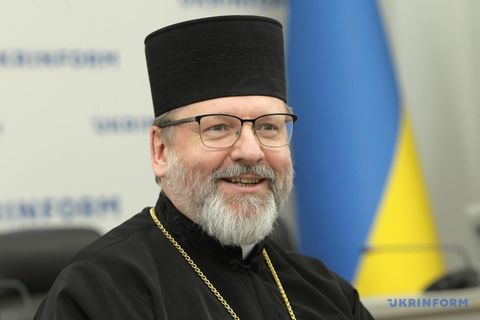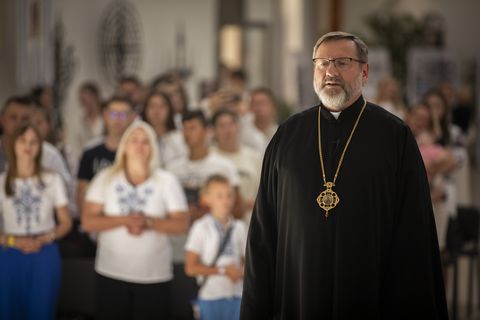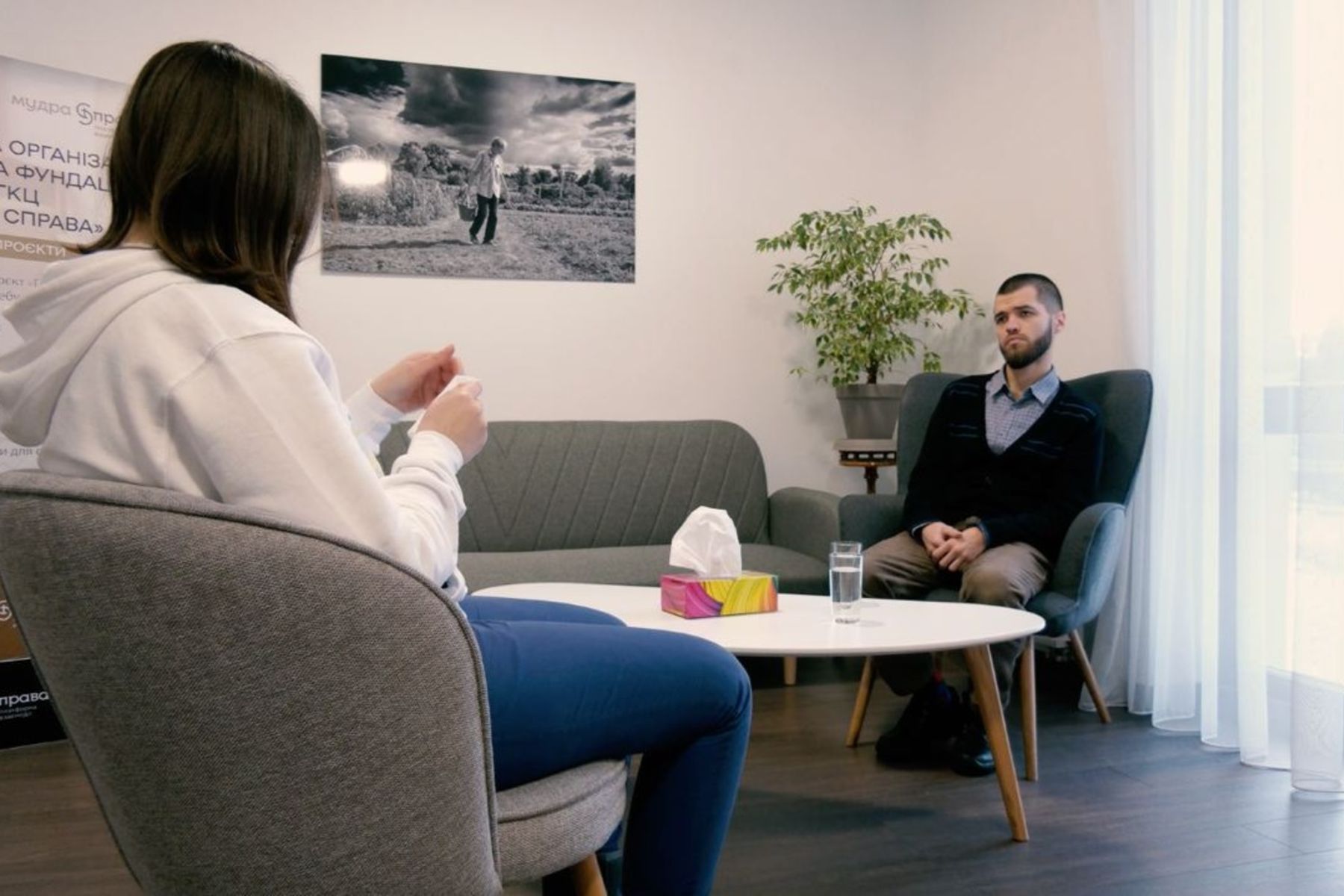
Father Oleh Klymonchuk about the Mental Health Center: “The Church offers a message of hope, reminding us of the Lord’s love”
Everyone strives for health and happiness, which are essential for a person’s well-being and proper integration into society. One of the cornerstones of a harmonious life is maintaining a stable, healthy, and positive psyche. Recently, due to the war in Ukraine, we have observed a significant deterioration in the mental health of the population. This has created a need for support, guidance, and professional help to address the psychological impacts of the war.
The Center for Mental Health of the Kyiv Archeparchy of the UGCC was recently established in Kyiv. This institution will provide vital care and assistance to those in need.
In an interview with the UGCC Department for Information, Father Oleh Klymonchuk, head of the Center and a graduate in developmental psychology from the Pontifical Salesian University in Rome and in clinical psychology with a focus on cognitive behavioral therapy from the Ukrainian Catholic University, discussed the Center’s mission and activities.
The Center for Mental Health aims to heal the wounds of war and support the well-being of Ukrainians during these challenging times.
— Father, the Kyiv Archeparchy of the UGCC recently opened the Mental Health Center, which you head. Can you describe what kind of center it is?
The Center for Mental Health focuses on healing the wounds of war and ensuring the mental health of Ukrainians today.
Our activities are primarily aimed at supporting the most vulnerable groups, including the military and their families.
We also focus on children who need special care, their parents, and families, as well as those who have lost their homes or loved ones. Assistance will be provided to individuals who have survived traumatic war-related events, experienced occupation, or been close to hostilities, as well as those struggling with anxiety and psychological difficulties due to the war.
Additionally, we will provide support to our clergy, priests, and their families. Like other professionals who are at the forefront of this crisis, such as volunteers, teachers, doctors, and rescuers, priests are often on the brink of burnout. It is crucial that we support them first, so they can continue their essential ministry.
— Who will provide assistance to those in need, and how will treatment be conducted?
Mental health professionals, including psychologists, psychotherapists, and coaches on various mental health topics, will offer assistance. The work will focus on two main approaches: treatment and prevention.
Prevention, aimed at preventing the development of severe psychological difficulties, will primarily involve group work. This includes training sessions and classes focused on psychological education, as well as activities designed to strengthen resilience, helping individuals better cope with these challenging circumstances.
Treatment will primarily address individuals already experiencing mental health difficulties, symptoms, or possible psychiatric disorders. Psychotherapists will use evidence-based methods to work with these individuals, effectively addressing their issues.
Additionally, we plan to engage qualified psychiatrists who will provide support to our patients.
The Mental Health Center will be based primarily in the Kyiv Archeparchy, with several locations in Kyiv where events will take place. We will also collaborate with other eparchies, as many people are now widely dispersed. For those who have relocated, we will offer online events.
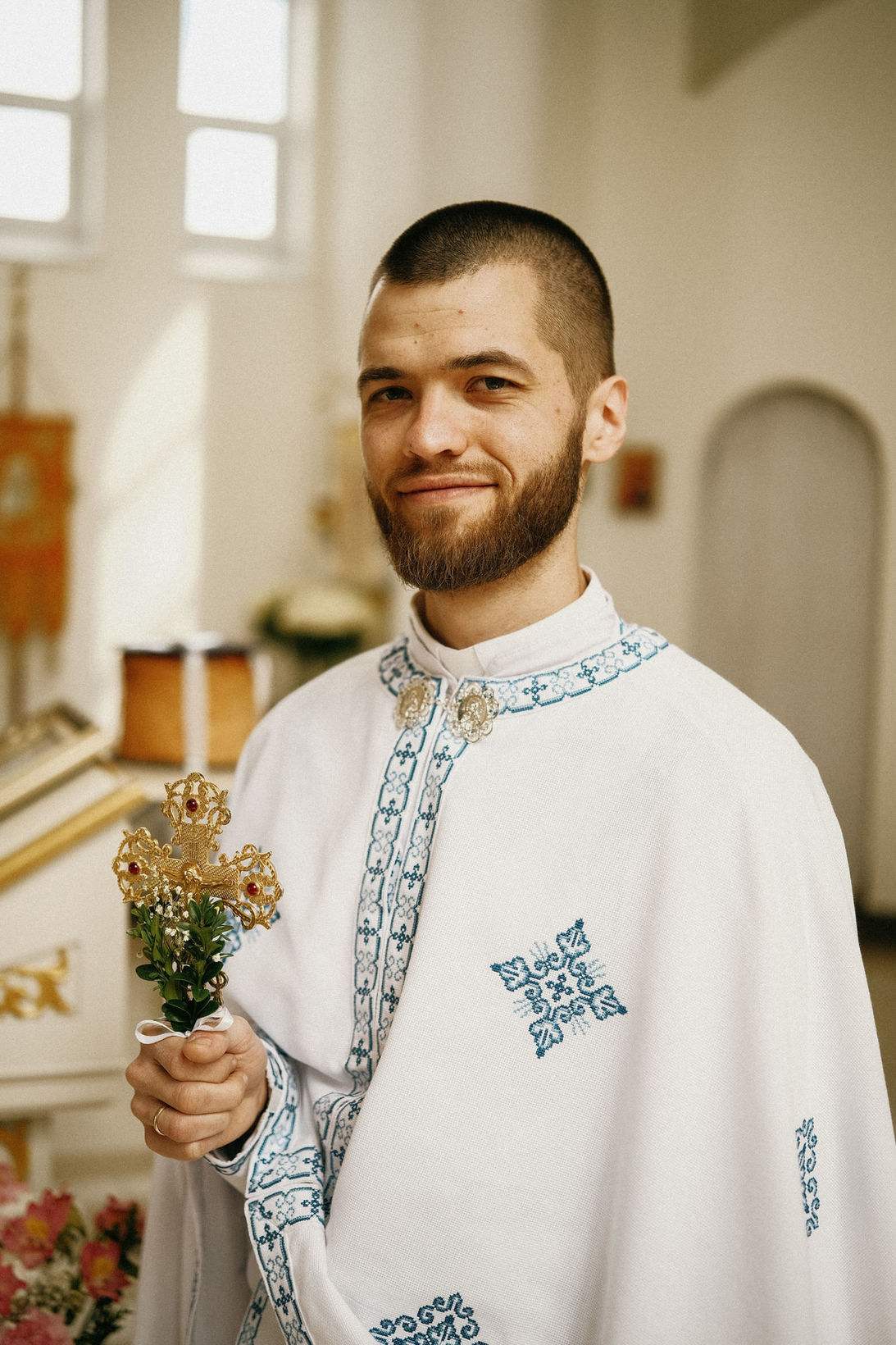
Psychotherapy will generally be conversation-based, centered around the therapist’s rapport with the individual, with a specific treatment protocol implemented within this rapport.
— Father, how will the actual treatment be conducted?
It is essential to understand that we are focusing on both prevention and treatment.
Prevention or psychological education involves specific work on psychological topics, such as resilience, which includes coping with negative emotions, stress, recovery, rest, and communication. Among other things, we will focus on preventing burnout and fatigue. This will include direct training sessions and interactive techniques that engage the body and creativity, helping individuals recover, identify the most relevant materials for treatment, and use diverse methods to address their challenges.
Regarding treatment, when individuals face specific psychological difficulties, more individual-focused work will be necessary. Sometimes, group work will be involved, such as support groups for people who are grieving or for military personnel.
In these cases, we will emphasize individual work, with counselors or psychotherapists consulting individuals through conversation, helping them identify the root causes of their difficulties. They will also help clients change destructive or erroneous thoughts that may contribute to emotional distress or assist in regulating their reactions to these thoughts and beliefs.
Overall, psychotherapy will be centered on conversation, with the rapport between the therapist and the person in distress forming the foundation of the treatment. Within this relationship, a specific treatment protocol will be applied.
The war is a severe stress, an overwhelming experience of many traumas and fears, and the third year of living under constant threat.
— Father, being a specialist in clinical psychology, could you elaborate on the psychological and emotional problems people are facing now?
The war is an overwhelming stressor, marked by numerous traumas and fears, and it has been ongoing for three years now, with a constant threat hanging over us. This persistent stress impacts our well-being, triggering chronic psychological illnesses. It becomes a stress factor that can shift our balance toward pathology or disease.
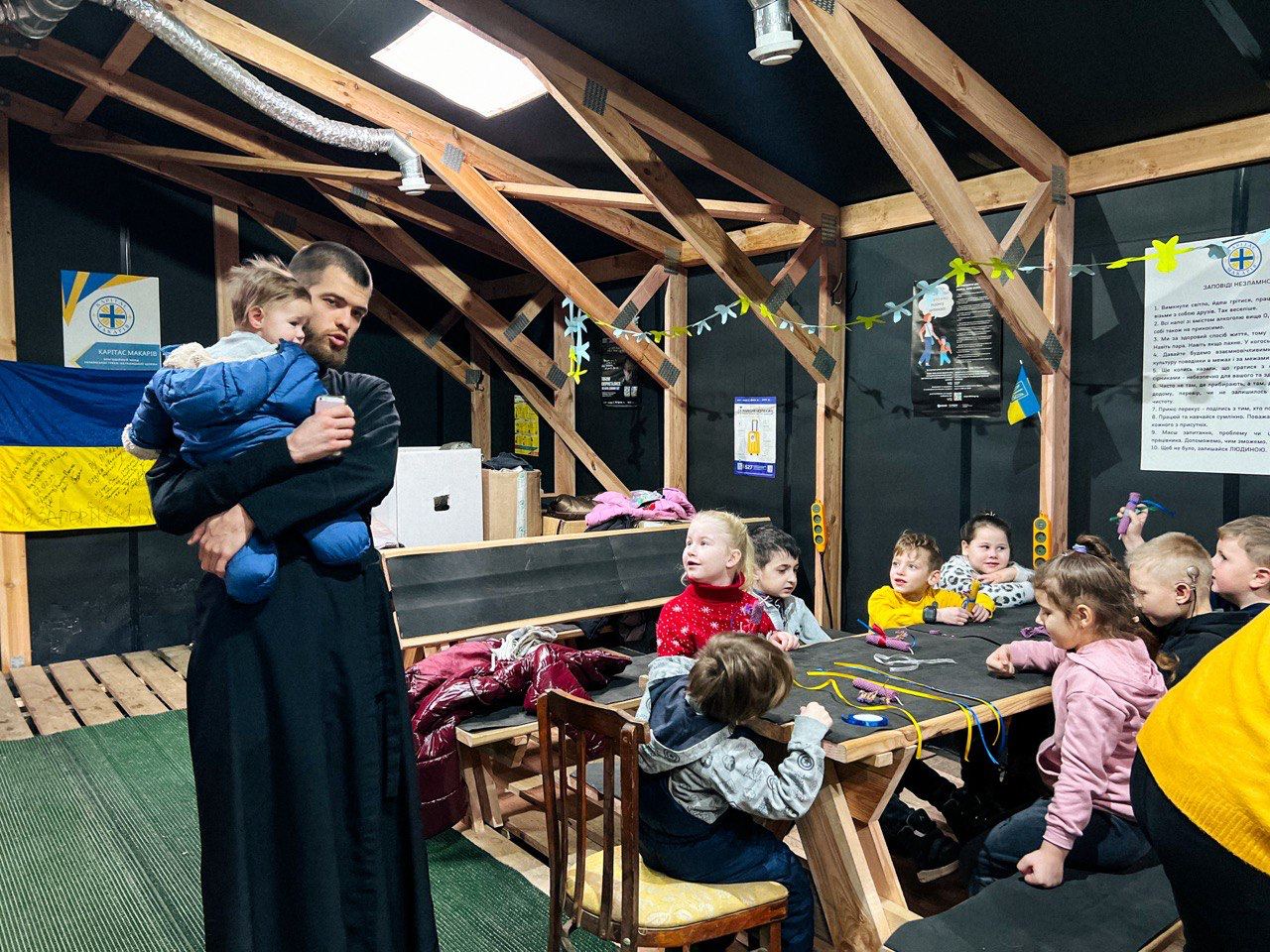
As a result, mental health has become a critical concern, especially since the war began. The amount of the threat and the ongoing stress have made mental health issues more apparent. The war itself has lasted since 2014, meaning that many people have been dealing with these challenges for years, though not to the extent we face today. Over time, however, we’ve become more aware of mental health issues, and there has been a reduction in the stigma surrounding the seeking of professional help.
In general, approaches to mental health care in Ukraine have started to shift toward evidence-based methods, which are widely used in Europe and around the world. This also reflects changes in the laws governing psychiatric and psychotherapeutic care, which are gradually evolving.
Given the significantly higher stress levels in recent years, the need for mental health services has grown, driving further development in the field. Among the most common psychological problems people face today are depressive disorders, anxiety disorders, and trauma-related disorders such as PTSD.
Loss-related disorders are also prominent, given the large number of lives lost in Ukraine, and the many people grieving these deaths. Therefore, depressive and anxiety disorders, trauma, loss, and substance use disorders are especially common in Ukraine today. These are some of the most prevalent mental health challenges not just in Ukraine but globally as well.
Severe stress can contribute to the onset of these disorders, and people experiencing such stress often develop these psychological conditions.
There is now much more awareness in society about the importance of seeking help, and as a result, people are increasingly reaching out for support. However, there are still some who avoid anything related to “psycho” — psychiatrists, psychologists, and the like. In such cases, individuals may find support from others who understand the situation, or perhaps turn to a priest for counseling. Some may also come across helpful content on social media or platforms like YouTube, which encourages them to seek assistance.

Prevention, in this context, also means educating the public about mental health — explaining the most common difficulties people may experience, how they can be treated, and where individuals can seek help. This is an important role of mental health centers like ours.
If a person has difficulties, it demands efforts, many resources and conditions to help them feel better.
— Given your experience and the center you lead, is there any vivid example or technique that has the most effective impact on the treatment process?
Globally, cognitive-behavioral psychotherapy (CBT) is the most widely used and effective method for treating the psychological disorders mentioned earlier. However, CBT itself encompasses a range of approaches, and often, a combination of techniques is used. What matters most is that the method is scientifically proven, meaning it has been shown to effectively address specific mental health challenges.
That being said, we cannot claim that there is a miraculous method that leads to an immediate cure—this is simply not possible. Overcoming psychological difficulties requires time, effort, and resources, as well as favorable circumstances to help the person feel better.
— Father, what is the role of the Church in recovering the psychological health of the population?
Psychology, spirituality, and human values are fundamental to every person’s well-being.
In terms of spirituality and values, the Church plays a crucial role in promoting these principles to its faithful. A well-known scholar, Viktor Frankl, who survived a concentration camp, wrote extensively about the importance of finding meaning in life, especially under extreme conditions. He emphasized that the search for meaning is central to human existence.
As Frankl noted, “This is the driving force of human life. This meaning is unique, and can only be found by the person themselves.” The meaning one finds in life can be a powerful force for overcoming difficult circumstances. Spirituality and values form the core of human existence, providing the reason for living.
The Church, therefore, helps to highlight these values and meanings. It teaches people to pray, offers words of hope, and reaffirms that the Lord loves us and is with each of us. This sense of love and connection gives people a reason to live and persevere: love for God and for others. For instance, our soldiers today are defending us out of love for their country and people.
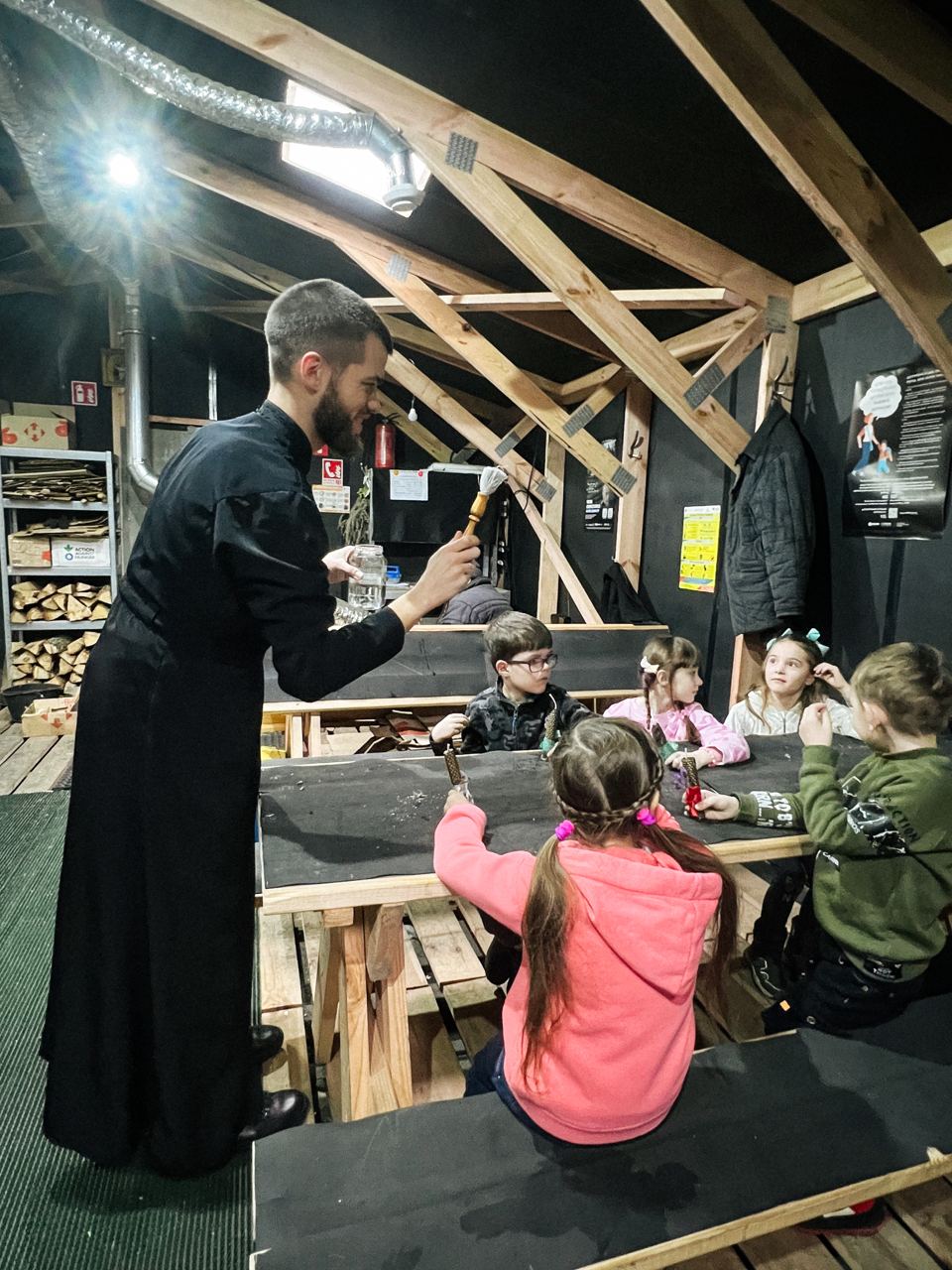
When we know that we are loved, we can endure tremendous hardships. From a psychological standpoint, values and spirituality are foundational for individuals. These values support people, helping them navigate difficult life situations.
The Church embodies these values. If the Lord calls us to love God and our neighbors, the Church and its communities are engaged in a social ministry of love. This is why initiatives like Caritas exist—to assist those in need, including those suffering from poverty or psychological distress.
Moreover, the Church is a community. With constant contact among its members, priests are in a unique position to offer guidance, advice, and help people find the resources they need. Through their reach and influence, they can significantly aid in healing, both psychologically and spiritually.
Perseverance is the ability to withstand hard knocks and situations in life, to survive and recover afterwards.
— Is there any standardized methodology for how we can maintain psychological and spiritual balance during the war?
Given the constant experience of extreme stress among Ukrainians today, the number of people facing psychological difficulties is rising. In this context, we can generally speak about the concept of perseverance or resilience.
Perseverance is the ability to withstand heavy blows, survive them, and recover. Therefore, it is crucial to be aware of our mental health, to recognize common disorders, and to know where to seek treatment. Equally important is the need to take care of our well-being, ensuring adequate rest and replenishing our resources. Social support, spending time with family and friends, also plays an essential role.
Faith and prayer contribute significantly to improving overall well-being. Taking care of our bodies—through proper sleep, nutrition, and rest—also has a positive impact. In essence, it is like a puzzle made up of various components, where we must put in effort to support ourselves and our psyche during these challenging times.
— Father, have you thought about the further development of the center?
The Mental Health Center is still in its early stages, so our current goals are to build a team of specialists, secure funding for these initiatives, and establish a community and space to implement these projects. While the work has already begun, much of it is still in progress.
It’s important to remember that if something doesn’t feel right, it shouldn’t be troubling to seek help. Finding a competent and experienced specialist is key, and reaching out to them can make a significant difference.
— What would you wish or advise to strengthen people’s faith and spiritual harmony?
To have the relationship with God that we need, as well as with our loved ones, we must spend quality time with them. To find spiritual harmony in the soul, we must practice our values, pray, believe, and read the Scriptures. It is important to do this diligently, making it a meaningful moment for ourselves. It doesn’t necessarily have to be lengthy; even a few minutes of quality time can help us connect with God.
As for mental health, we need to remember that we are vulnerable, and we may face difficulties. In such times, we should first try to support ourselves and our loved ones, so we do not drift into pathology and can stay healthy.
It is also important to remember that if something feels off, it is not wrong to ask for help: find a competent and experienced specialist and reach out to them. When the situation becomes critical, and our well-being is at risk, we must seek help to understand what is happening and ensure that the situation remains under control.
Interviewed by Victoria MazurThe UGCC Department for Information

